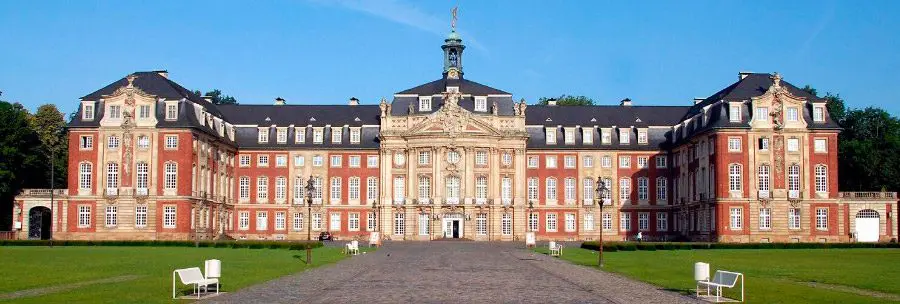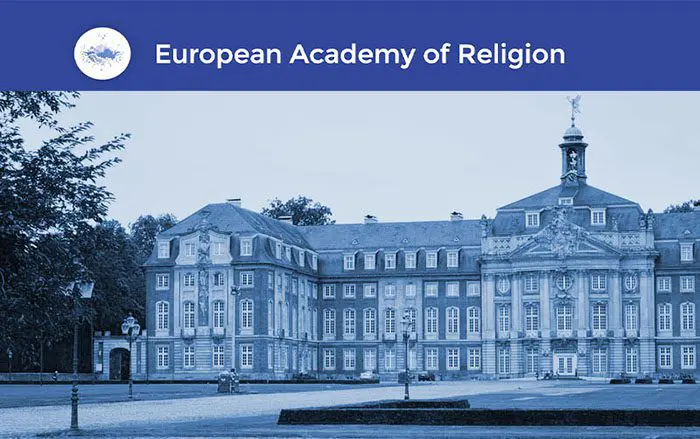On Monday August 30, at the University of Munster, the European Academy of Religion – a research initiative on religion launched under the high patronage of the European Parliament, offering an exchange platform to scholars, universities, centers, research infrastructures, scientific journals and publishers coming from Europe and the surrounding regions – launched its annual meeting of 2021, in a hybrid format, with on-site and online sessions.

The President of the Academy, Prof. Hans Peter Grosshans (WWU Münster) in an official statement on their website said: “The Münster conference of the European Academy of Religion will discuss these and many more questions which are raised when studying the relation of religion and change.”
One of the first sessions was called “Gnosticism and New Religions: The Case of L. Ron Hubbard” and tackled the topic of Scientology as a modern gnosis. The session was moderated by Rosita Soryte, board member of the European Federation for Freedom of Belief. Three panelists approached the topic from different angles.
Aldo Natale Terrin, a Roman Catholic priest teaching at the Santa Giustina Institute in Padova, had already written a comprehensive book on the similarities between Scientology and gnosis as well as with other religions, including eastern religions. In his presentation, he developed the fact that the comparison between Scientology and Gnosticism is evident, based primarily on several principles, including its explanations relating to the fall of the spirit, the conception of the world as matter, and the need to recover the knowledge of the hidden “divine spark” that lies in human spirits in order to return to the divine. He added that there are other manifestations of Scientology that can be compared to Gnosticism giving a number of other examples of this. He concluded by quoting the Italian Humanist Agostino in his Prisca theologia (Ancient theology), an expression which means “that there is a ‘eternal core’ of shared wisdom in all religions, synthesized as a Transcendental doctrine”, saying that “surely Gnosticism and Scientology belong to this Great Tradition”.

Then Massimo Introvigne, managing director of the CESNUR (Center for Studies on New Religions) and editor-in-chief of the daily magazine Bitter Winter, furthered the discussion by reviewing how in the 60s and 70s, some antagonists to Scientology attempted to take advantage of the relationship of Scientology’s founder, L. Ron Hubbard, with several Gnostic traditions and movements before he founded Scientology, in order to depict him as being associated with black magic. Introvigne reviewed different angles that attempted to discredit Hubbard at that time, and debunked the idea that he would have been so motivated. While Hubbard had indeed expressed interest in magic and found it praiseworthy in its attempt to overcome materialism, he also considered that magic was likely to fail as it depended too heavily on rituals and beliefs. He concluded by stating that Hubbard’s assessment of magic (and of Aleister Crowley, the famous British magus who leaded the Ordo Templi Orientis) was in fact surprisingly modern and close to that of more modern academics.
Finally, Eric Roux, chair of the European Interreligious Freedom for Religious Freedom and also a European religious leader of the Church of Scientology, made a presentation based on some of the writings of L. Ron Hubbard, where the Scientology Founder acknowledged that Scientologists are in fact Gnostics, in the sense that “they know that they know”. Scientology, Roux said, is “a quest for liberating knowledge, a desire to transcend the consequences of a ‘spiritual fall’ which has made the spirit prisoner of its own traps, and this can only remind one of ancient Gnostics themes”. He made comparisons between the aspirations of those ancient Gnostics and some of the “gradient scales” and axioms that exist in Scientology demonstrating that the purposes were similar. “Of course,” Roux said, “Scientology is a religion of the 20th century and its quest for knowledge therefore necessarily involves other tools than those that existed in ancient Greece or in the early days of the Christian era. Nevertheless, the result is that Scientology is Knowingness, awareness, and personal freedom for the individual, and this Gnosis,” he concluded.







